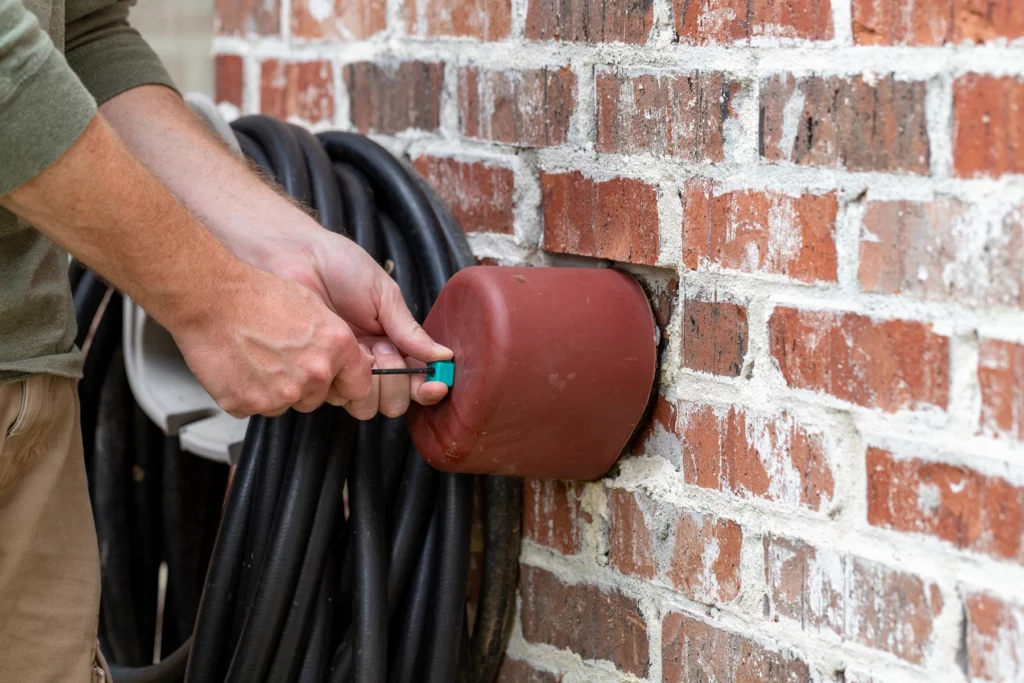In Atlanta, we’re lucky to have good weather most of the time. But when winter sets in, we need to be prepared. Making your home work to maximum efficiency could save lots of money over this winter and beyond.
Furnace: Have the furnace professionally tuned, and perhaps have the ducts cleaned.
A/C: Some people turn their air conditioner off for the winter, making sure the outdoor pipes are insulation-wrapped, and a cover is put over the outdoor unit.
Fireplace: Have the fireplace checked before using it each year, so it won’t start a house fire. To avoid chimney drafts, install a simple chimney balloon, a sealing damper with rubber gaskets, or liners that insulate the firebox or chimney. Have tight-fitting fireplace doors, and perhaps go the extra mile as Southern women would often do, by putting a rack with your best quilts in front of it.
Water Heater: If it is warm to the touch, an insulating wrap could help. If yours is in the garage fighting the cold all winter, consider getting a tankless water heater installed indoors.
Plumbing: Have plumbing checked for cracks that could turn into bursts. If you don’t already have one, get an emergency release valve installed to release blocked up water pressure if the pipes freeze.
Outdoor Plumbing: Disconnect and store garden hoses and turn off sprinkler systems. Don’t forget to weather-wrap outside spigots.
Detectors: Especially because you will be indoors more, and you are sealing the home more than usual, keep your carbon monoxide and smoke alarms in good working condition by testing them monthly.
Insulation: Check the attic, outer walls and basement insulation for adequacy. You may also want to insulate the garage, especially if there are bedrooms above it. Keep an eye on insulation technology advancements, such as aerogels, gas-filled foil panels, even wool.
Windows and doors: Weather-strip or caulk windows and doors, and put draft slides under the door if there is space between it and the floor. Install insulated gas vapor windows, window film or storm windows (which can conveniently be installed inside on upper floors), insulated drapes or honeycomb style shades, to save as much as 70% heat loss in your home. If you have a window air conditioner, remove it for the season, or wrap it inside and outside with insulating materials.
Block Pests: Do a walk around the outside of the house to caulk holes where wild creatures might try to nest.
Check the roof and roofline: Some shingling or gaskets on the roof may need repair to make the roof fully winterized. Make sure gutters are cleaned of leaves and in good working order. Perhaps invest in gutter guards, especially for multi-story homes, to make winterizing in the following years much easier.
Be prepared: Expect bad weather before it gets here. Have rock salt ready for slippery driveways, and scrapers for car windows. Have hand warmers or hand sanitizer (it is alcohol based) to loosen frozen car door handles. Get together a list of insurance agents, county offices, utility companies, tree removers, plumbers and other people you may need to call in a weather-related home emergency when you might not have an internet connection.
Outdoor Furniture: Store away outdoor furniture and anything that could blow away in a storm, or cover and anchor it after spraying a mildew protection spray on cushions, and waxing wicker sets. Coat wood and wooden decks with weatherproof sealant. Bring the grill inside if at all possible, to extend its life.
Pool: Once the water is at 65 degrees or below, remove baskets and anything loose, and clean and store these until summer. Thoroughly brush and vacuum your pool and then shock the water. Release enough water so the level is 6 to 12 inches below where the pool cover will sit, in case the water freezes and expands. Make sure the alkalinity is 80 to 150 ppm, the pH level is 7.2 to 7.6 and the chlorine level is 1 to 3 ppm before putting the cover on. Anchor the cover down tightly, because it will sag as rain collects on it. Drain the pump and remaining hoses before putting them up.
Trees: Check the trees on your property to learn where they might fall during heavy rain or wind. If they are sick, damaged or threatening to fall on your home or your neighbors’ property, have them removed in advance. Learn in advance whether the fence belongs to your neighbor or to you. They tend to be the victims of falling trees and limbs.
Finally check your insurance coverage to find out whether you are adequately insured, and to learn exactly what is covered, under what conditions, and how it will be replaced.
It may seem like a lot of work to make your home ready this winter, but being proactive can save lots of time, money and difficulty in the long run.

